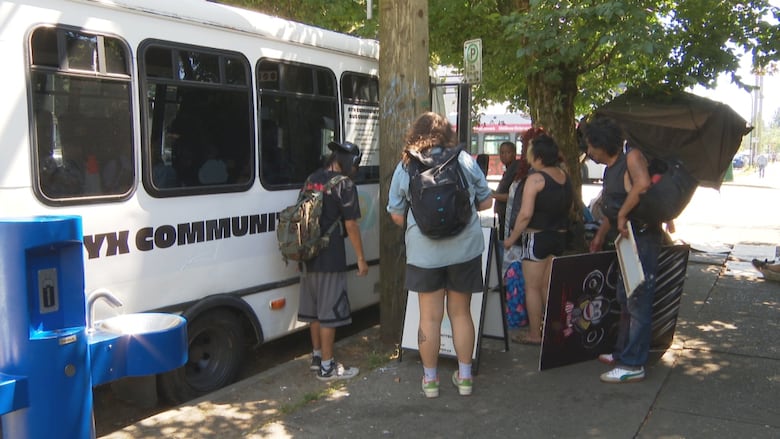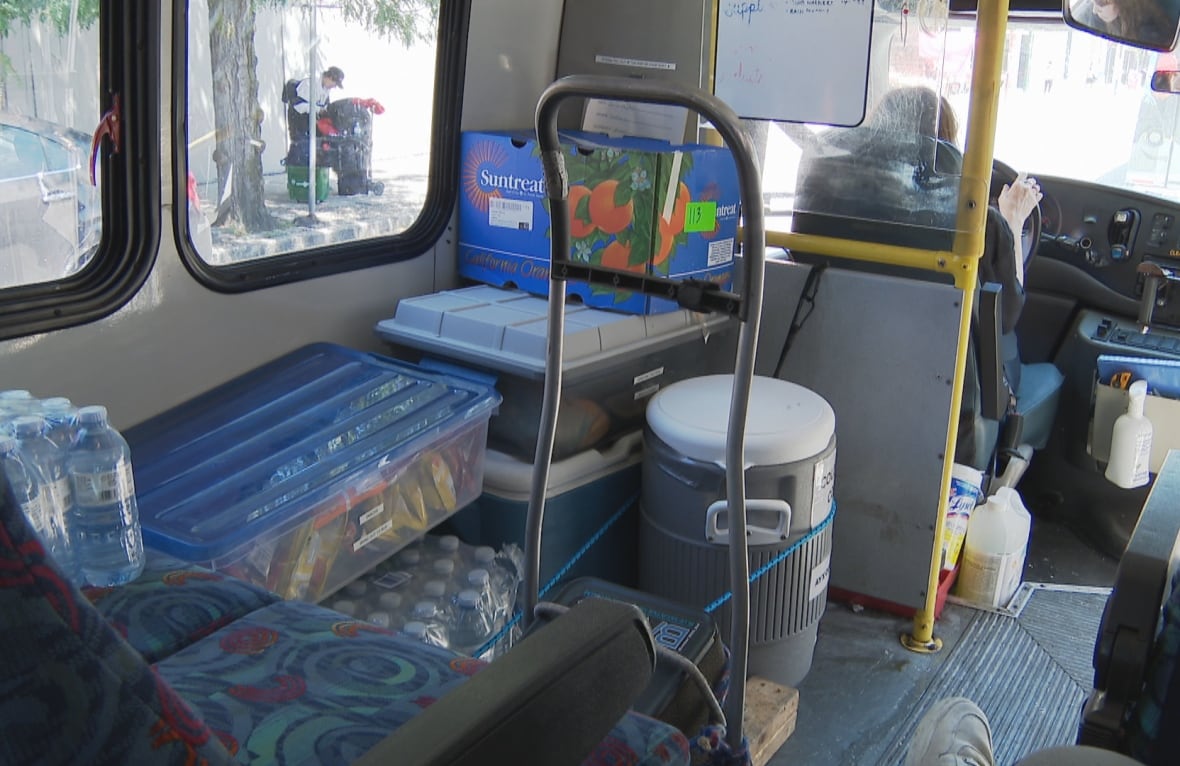Cooling bus run by former CRAB Park residents providing heat relief in Downtown Eastside
Bus operates 3 days a week, offers cold water, snacks, harm reduction supplies

A cooling bus run by former residents of the CRAB Park encampment is taking to the streets of Vancouver this summer, stopping in parks and streets around the Downtown Eastside to provide people with relief from the heat.
The community initiative offers cold water, snacks, hot weather gear and harm reduction supplies on Mondays, Wednesdays and Fridays.
Organizers say they're aiming to fill a service gap amid funding cuts to some other support services in the area and a daytime camping ban that means unhoused people aren't allowed to set up shelters during the hottest hours of the summer.
The initiative is staffed by a team of about 35 people, many of them former residents of the CRAB Park encampment, which the city closed down last November.

One of those former residents, Larry Cocksedge, said running the cooling bus feels like a way to give back to a community that has helped him out many times.
"Not everybody gets to eat every day, and if we can provide them a snack and a water or a freezie, or something to help them cool down, it's just amazing," he told CBC's On The Coast host Gloria Macarenko.
Fiona York, a housing advocate who spearheaded the bus idea, said staff are trained in overdose prevention and can offer expertise that people who aren't a part of the community can't.
For instance, she said, they know what areas of the neighbourhood to go to to reach people who are the most in need, or who can't get to physical cooling centres or support services themselves. York said they have cold water, ice packs, cool towels and electrolytes.
She said with rising temperatures this week, there is an especially high need for help.
The City of Vancouver said it's provided more than 6,200 cooling kits to local organizations over the last three years.
In an email to CBC News, a city spokesperson said some cooling centres extend their hours during extreme weather conditions, and that the centres are free for everyone. An online city map shows the locations of spray parks, misting stations and cooling centres.
For those running the cooling bus, it's about helping out their neighbours.
"The system has failed a lot of people," peer mentor Natasha Shingoose said. "But instead of turning away, we're coming together as a community to show up for one another."
York said they are fundraising and hoping to run a warming bus come winter.
With files from Ameila John
